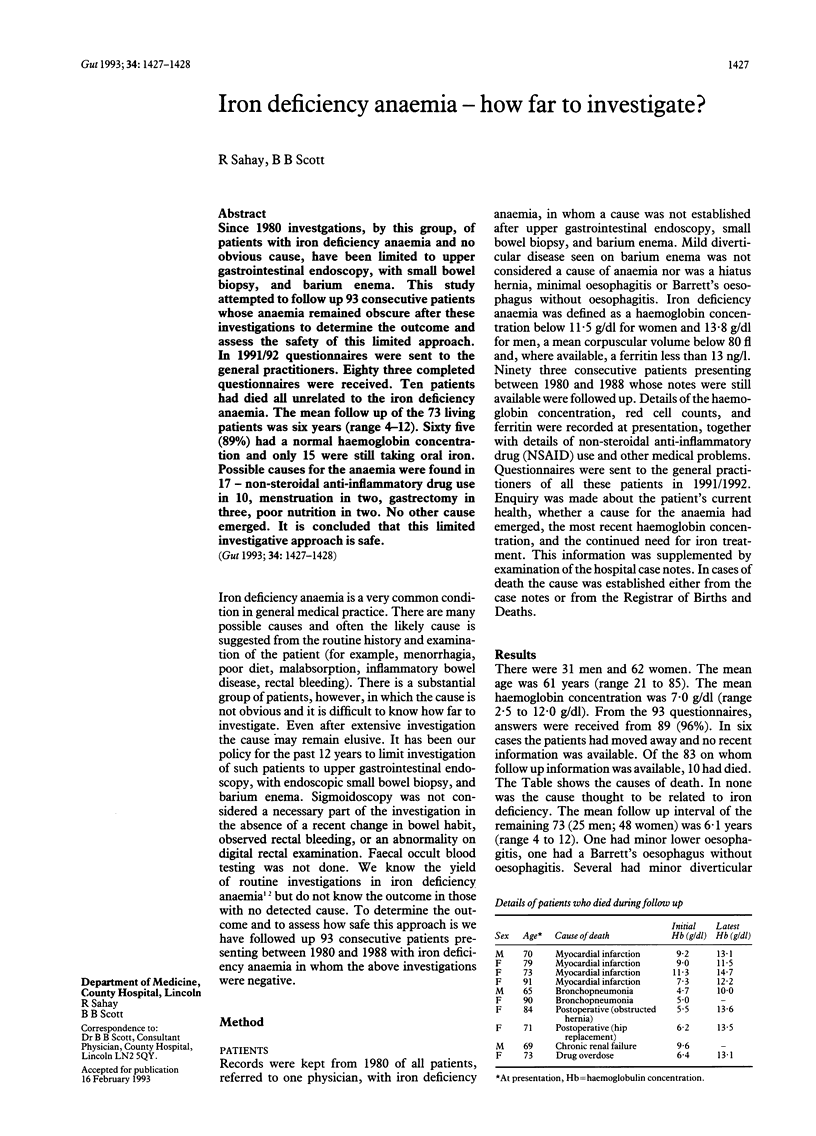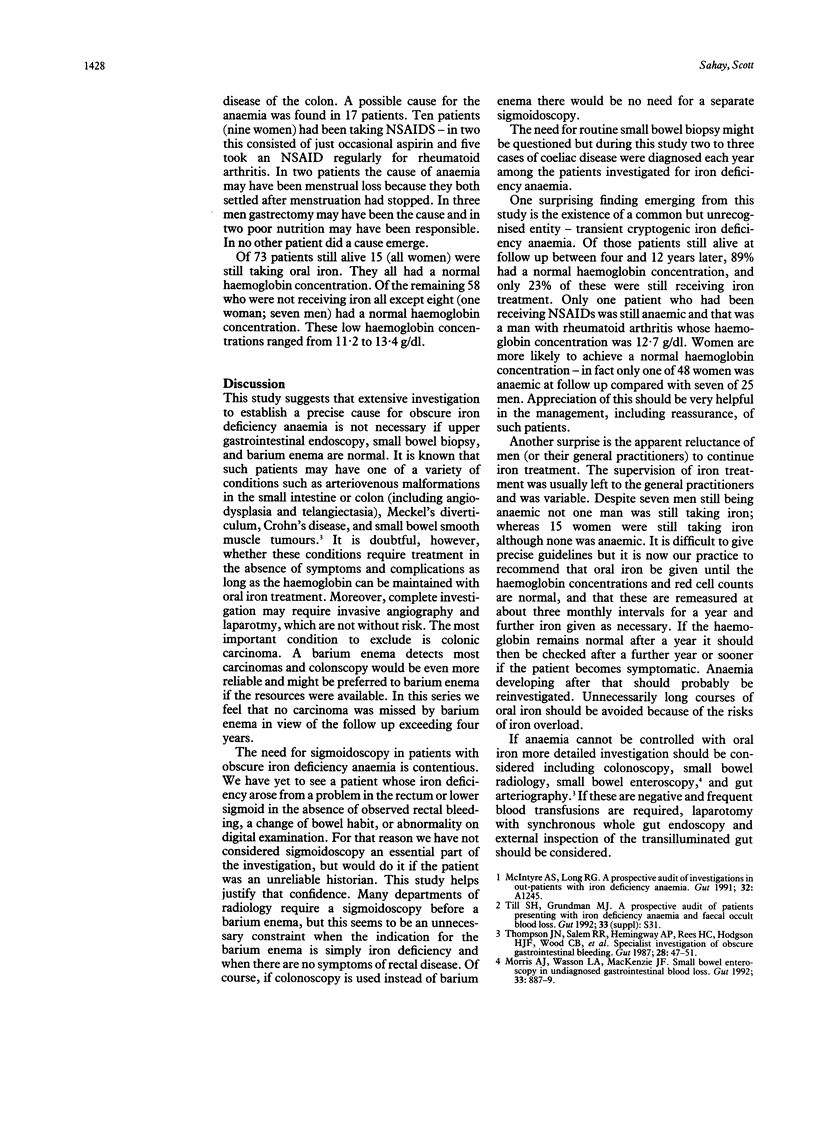Abstract
Since 1980 investigations, by this group, of patients with iron deficiency anaemia and no obvious cause, have been limited to upper gastrointestinal endoscopy, with small bowel biopsy, and barium enema. This study attempted to follow up 93 consecutive patients whose anaemia remained obscure after these investigations to determine the outcome and assess the safety of this limited approach. In 1991/92 questionnaires were sent to the general practitioners. Eighty three completed questionnaires were received. Ten patients had died all unrelated to the iron deficiency anaemia. The mean follow up of the 73 living patients was six years (range 4-12). Sixty five (89%) had a normal haemoglobin concentration and only 15 were still taking oral iron. Possible causes for the anaemia were found in 17-non-steroidal anti-inflammatory drug use in 10, menstruation in two, gastrectomy in three, poor nutrition in two. No other cause emerged. It is concluded that this limited investigative approach is safe.
Full text
PDF

Selected References
These references are in PubMed. This may not be the complete list of references from this article.
- Morris A. J., Wasson L. A., MacKenzie J. F. Small bowel enteroscopy in undiagnosed gastrointestinal blood loss. Gut. 1992 Jul;33(7):887–889. doi: 10.1136/gut.33.7.887. [DOI] [PMC free article] [PubMed] [Google Scholar]
- Thompson J. N., Salem R. R., Hemingway A. P., Rees H. C., Hodgson H. J., Wood C. B., Allison D. J., Spencer J. Specialist investigation of obscure gastrointestinal bleeding. Gut. 1987 Jan;28(1):47–51. doi: 10.1136/gut.28.1.47. [DOI] [PMC free article] [PubMed] [Google Scholar]


